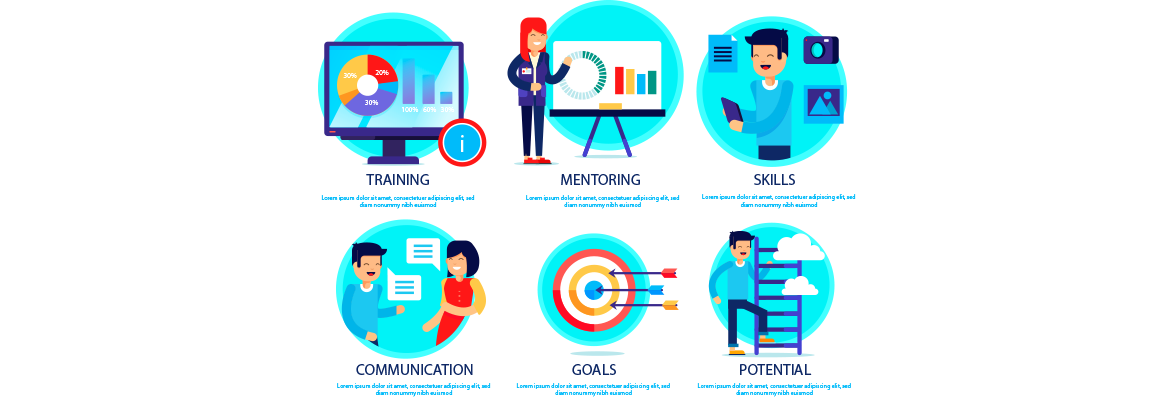
 Apr 15, 2023
Apr 15, 2023
A digital coach is a professional who specializes in helping individuals and businesses get the most out of their online presence. They provide guidance on the best strategies and tools for leveraging digital marketing, social media, website development, and other related activities. Digital Coaches are equipped with the knowledge to help organizations reach their goals in a cost-effective manner, without sacrificing quality. Have experience creating targeted campaigns that attract customers, build relationships, and drive sales. With their skills, they can help companies streamline operations and create a more efficient digital infrastructure. Digital Coaches also provide training to professionals on the latest tools and techniques to improve their digital presence.
Digital trainers need strong interpersonal skills to be effective in their work. Soft skills are interpersonal skills and personality traits that enable a person to interact effectively with others. They include communication and problem-solving skills, the ability to work well in teams, and the ability to manage conflict.
Effective digital coaches understand that developing and maintaining good relationships is the key to success. They have excellent communication skills and are able to effectively explain complex concepts in an easy-to-understand manner. They also have strong listening skills, so they can hear customers' concerns and respond appropriately.
Digital Coaches must be able to work well with teams, collaborate, delegate tasks, and motivate others to achieve goals. They must be patient and understand their team's limitations and strengths.
In addition, digital coaches must be able to solve problems quickly and efficiently. This requires strong analytical thinking skills and they must be able to quickly troubleshoot technical issues and be creative in finding solutions to customer needs.
Finally, digital coaches must be able to manage conflict effectively. They require excellent interpersonal skills so that they can handle difficult conversations with clients or team members calmly and professionally
A digital trainer can provide invaluable soft skills to any organization. Soft skills are the personality traits that enable a person to interact effectively and harmoniously with others. By leveraging the soft skills of a digital trainer, organizations can benefit in several ways.
First, they can learn how to better manage their time and resources. The Digital Coach provides guidance on best practices for managing workloads, setting clear expectations and deadlines, and ensuring tasks are completed in a timely manner. This helps organizations achieve their goals efficiently and cost effectively.
Secondly, digital trainers provide valuable communication training services. They provide guidance on effective ways to communicate within an organization, as well as how to enhance collaboration between teams and departments. When communication is clear and effective, it leads to better decision-making processes and improved productivity.
Finally, digital coaches can help organizations develop their leadership skills. They give advice on how to motivate and inspire employees, how to foster a positive work culture, and how to build relationships with customers and partners. By acquiring these leadership skills, organizations have the ability to successfully navigate an ever-changing business landscape.
Digital training is becoming increasingly popular among companies and organizations, and for good reason. By using the digital coach, companies can benefit in several ways. First, they can optimize the resources of their employees, which allows them to save money by reducing the cost of training. Second, they can increase employee engagement by providing more interactive learning experiences. Third, they can enable faster onboarding and development of new employees. Finally, they can improve team collaboration and communication skills.
By leveraging a digital trainer's soft skills, companies can reap the rewards of more efficient training sessions. Digital instructors are technology experts with the ability to create interactive and engaging content that keeps learners engaged throughout the course. They also have a wide range of knowledge that can help foster better working relationships and collaboration between teams. In addition, digital trainers have excellent communication skills that help them ensure that everyone understands the material that is presented during the training sessions.
Digital coaches can also help companies achieve their goals faster by providing real-time feedback on progress during trainings. This feedback is invaluable to ensuring that employees are on track with their learning goals and that any areas for improvement are quickly identified. Furthermore, the digital trainers are there to provide guidance and support throughout the entire process to ensure this
Digital coaches can help their students develop key skills with the help of interactive activities and exercises. Soft skills such as communication, collaboration, leadership, problem-solving, and decision-making are all keys to success in the digital world.
To get started, the digital coach should identify the soft skills that are most relevant to their students' individual needs. Once identified, the trainer should plan to participate in activities and exercises that will promote development in these areas. For example, they can encourage group discussions or debates to build communication skills or assign tasks that require problem-solving to strengthen analytical thinking.